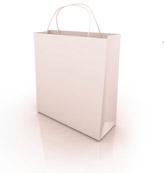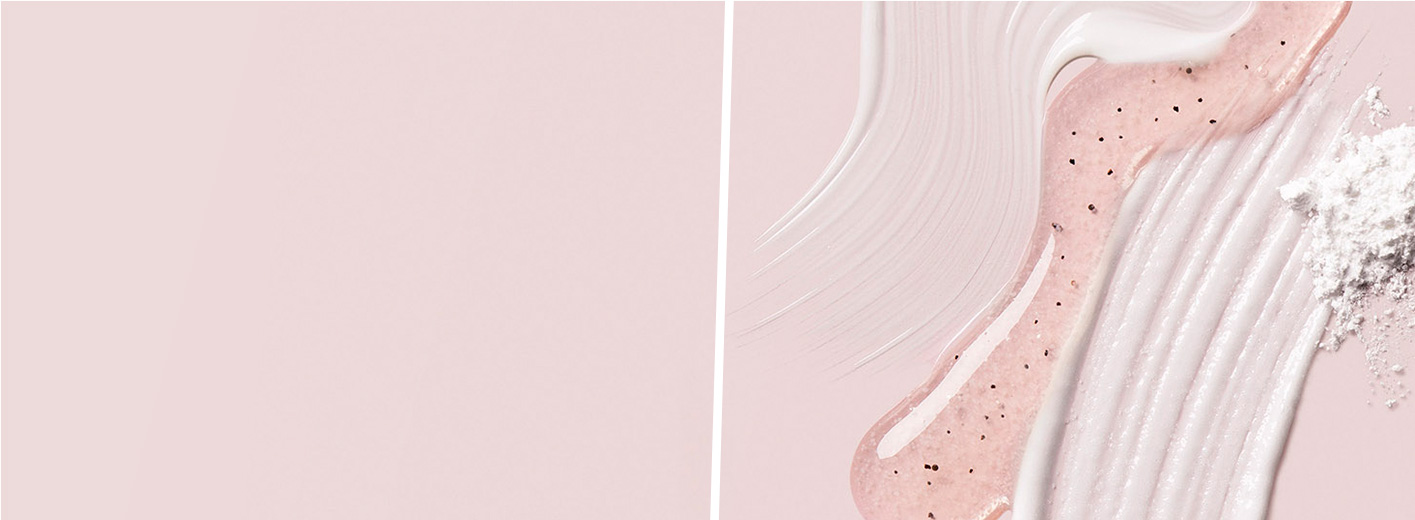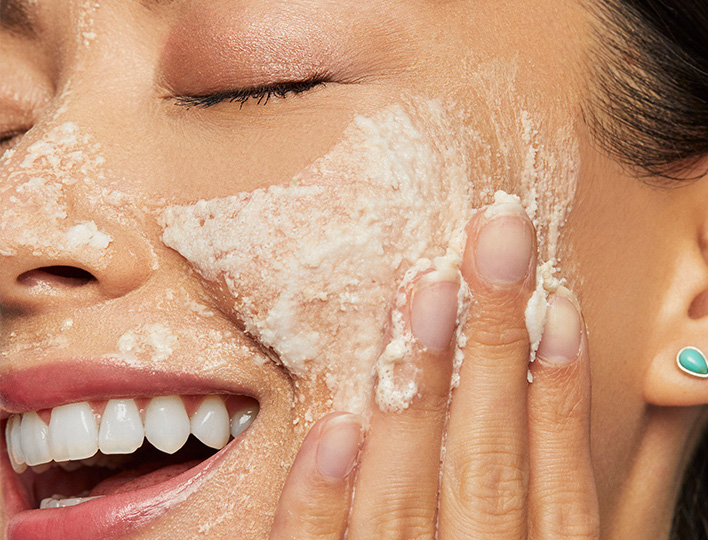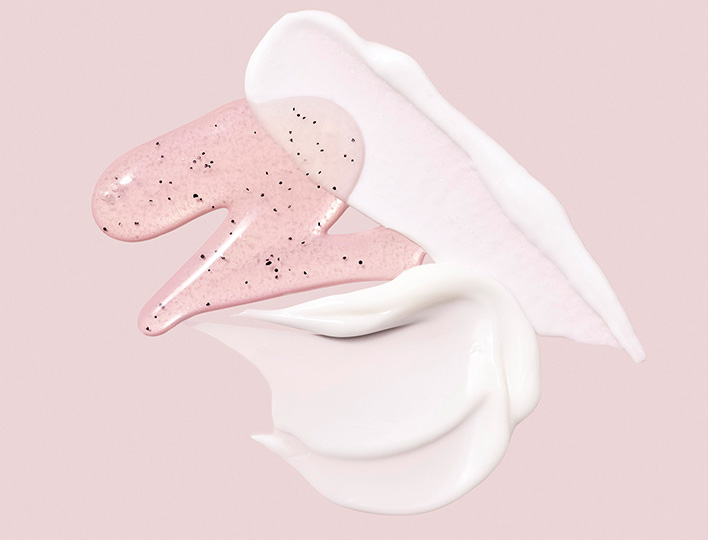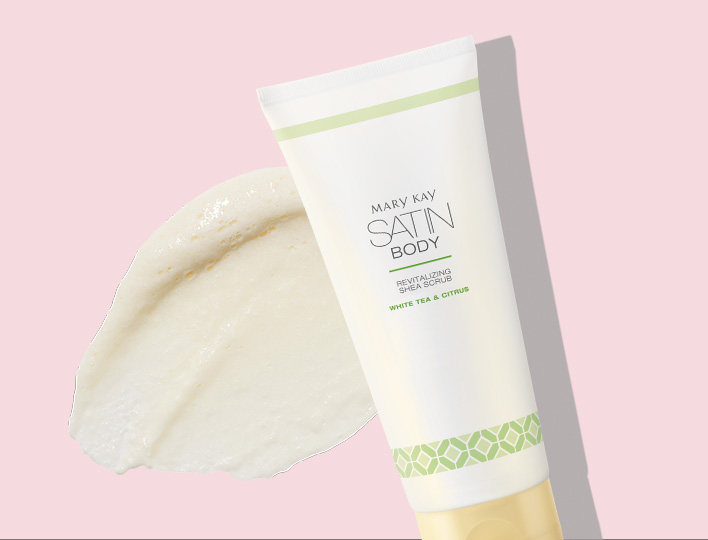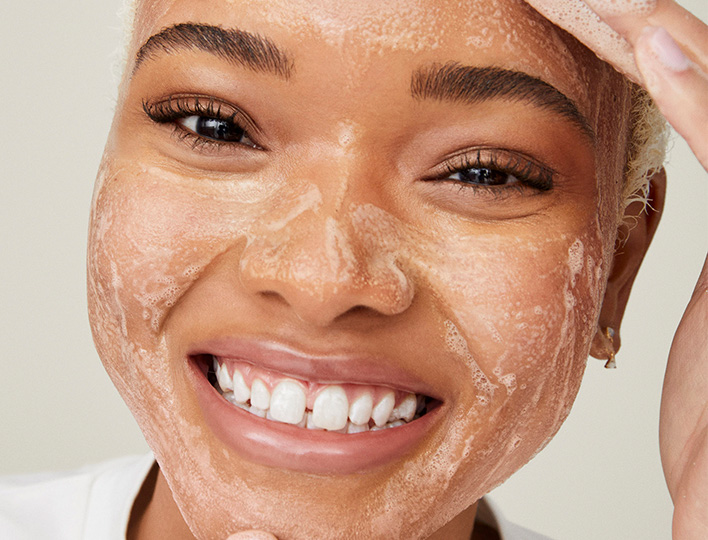What is exfoliation, and why is it important?
In terms of skin care, exfoliation is the process of removing dead skin cells. You can achieve this removal with a physical exfoliant like a scrub or brush or by using a chemical exfoliant, which may use an acidic chemical such as glycolic acid (an alpha hydroxy acid) to remove dead skin cells.
This is an important step regardless of skin type, because even though the skin renews itself every 30 days or so, sometimes the uppermost dead skin cells are not completely removed naturally. Exfoliation helps clear these excess dead surface cells so the underlying new skin cells are revealed. Exfoliating the skin — including the lips— helps smooth skin texture and may also help prevent the development of dry, flaky skin. If you're looking for anti-aging benefits, you should exfoliate because it can help improve skin radiance, texture and clarity, and can also reduce the appearance of lines and wrinkles for younger-looking skin.



